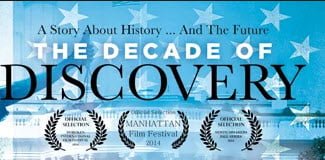On May 7, a film was shown in Zurich(trailer), which shows the development of the American eDiscovery process during the last 20 years. The film describes the development of the processing of data, which must be presented in American trials. In U.S. procedural law, parties may call evidence from each other. If a party cannot provide something, and the judge feels that party cannot or will not do so, the judge can convict that party without having to examine any further facts (or poll the jury). The film was devoted in detail to the difficulties that the investigating bodies had to overcome. Since the advent of the first electronic means of communication, the forerunners of today’s e-mail, data volumes have been growing at an ever-increasing rate. Fifteen years ago, a few 100,000 e-mails were expected to be produced in the White House; today, this figure is likely to be in the billions. The well-known cases such as ZUBULAKE vs. UBS were presented in detail and critical voices were also raised about the American legal system. Among other things, it was testified that today 80% of the costs of the proceedings would be incurred to obtain evidence. This means that in most cases an extensive search in mail systems has to be done. These search costs are exorbitant, as you can read in our eDiscovery chapter (Information Governance Guide). Although the procedures for this have now matured considerably, the effort involved is still immense. What the film did not show was the fact that collecting the relevant data sets already generates a lot of effort. The film focused primarily on the search. But searching also means knowing in which datasets the artifacts you are looking for might be located. There was also no statement in the film about the tendency to archive data as completely as possible. This is an effort that we strongly criticize because it opens the door to data misuse.
What conclusions can be drawn for Switzerland and Europe from the experience shown?
1. the procedure of presenting evidence, as it is coined in the USA, is an absurdity and we can be glad that in Central Europe they have nothing to do with it. This has been the case not just for a few years but for quite some time (cf. about NZZ: E-Discovery – The New Danger from Overseas (27.10.2005, p.29)
2. the same applies to the punitive damages, i.e. the completely exaggerated claims for damages, which are largely approved by the US judges.
3. it is almost impossible to isolate the relevant data from such large amounts of data with high reliability. This can only be successful if activities have already been carried out in advance with the aim of mastering the data. Without well-managed information governance, such search operations always involve huge effort and corresponding costs.
For Swiss companies that do not get involved in U.S. litigation, the all-clear can be given without further ado. We do not know these discovery procedures. In our country, the judge decides according to free measurement and discretion, or according to the evidence presented to him (principle of free evaluation of evidence). Nevertheless, of course, this does not mean that no activities should be carried out for the collection of possible evidence. Because, of course, those who have the right evidence also have an advantage in the Swiss process. In contrast to the American procedure, however, those who fail to provide evidence cannot be convicted across the board. Nevertheless, especially in the context of e-mail communication, it is advisable to think very carefully about which mail archiving strategy you want to use. It is not possible to archive all e-mails over a long period of time, nor is it possible to dispense with archiving altogether. It is imperative to adopt the necessary rules and act according to them. In an international context, it is advisable to be aware of these applicable country rules and to decide in which countries you are most likely to run the risk of becoming involved in a lawsuit. Experience has shown that there is no single solution that meets all country-specific storage requirements. So there will be no getting around defining so-called “global rules”. KRM has many years of experience in such risk management processes and supports companies in defining these requirements.
PS: The film was followed by a panel moderated by SwissRe’s head of e-discovery, Taylor Hoffmann, with Jason Baron (ex-head of litigation NARA), Joe Looby (film producer), Ralph C. Losey (attorney and lecturer on e-discovery and evidence discovery), and Michael Becker (attorney and director at Consilio, the firm that organized the event at SwissRe in Zurich).
At the end of the discussion, there was also the question of whether the lawyers should not be better informed about these issues, since there is apparently a general deficit in this respect (USA). The opinion of the panel was strongly in the direction that lawyers should be more familiar with the relevant technologies or at least be able to classify the relevant terminology (e.g., the meaning and consequences of metadata, etc.); this could also lead (implicitly and explicitly) to legal services developing a better understanding of the overarching concerns and principles of information governance.







0 Comments